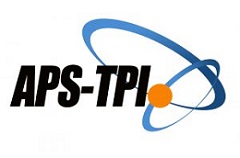The Role of STEM-Based Project-Based Learning in Developing Future Competencies: A Systematic Review
Abstract
The STEM project-based learning technique (STEM-PjBL) is acknowledged as an effective educational instrument for cultivating 21st-century competencies, including critical thinking, creativity, and problem-solving. This study seeks to evaluate the efficacy, obstacles, and potential of executing STEM-PjBL by a systematic literature evaluation of publications from 2019 to 2023 in the Scopus database. The evaluation identified 14 papers that fulfilled the inclusion requirements, analyzed via a qualitative descriptive technique, concentrating on learning outcomes, innovative solutions, and implementation issues. The findings indicate that STEM-PjBL consistently improves students' skills across different educational levels, with the integration of methodologies like Ethno-STEM and STEAM enriching the learning experience. Nonetheless, challenges like as constrained resources, teacher preparedness, and the lack of a standardized framework persist as significant impediments. This study promotes ongoing teacher training, equitable allocation of resources, and supporting educational policies to enhance the efficacy of STEM-PjBL. This technique can establish a basis for educational reforms that meet the requirements of the 21st century by mitigating these constraints.
Keywords
Full Text:
PDFReferences
Aguilera, D., & Ortiz-Revilla, J. (2021). STEM vs. STEAM Education and Student Creativity: A Systematic Literature Review. Education Sciences, 11(7), 331. https://doi.org/10.3390/educsci11070331
Ananda, L. R., Rahmawati, Y., & Khairi, F. (2023). Critical thinking skills of Chemistry students by integrating design thinking with STEAM-PjBL. Journal of Technology and Science Education, 13(1), 352. https://doi.org/10.3926/jotse.1938
Chang, C.-Y., Du, Z., Kuo, H.-C., & Chang, C.-C. (2023). Investigating the Impact of Design Thinking-Based STEAM PBL on Students’ Creativity and Computational Thinking. IEEE Transactions on Education, 66(6), 673–681. https://doi.org/10.1109/TE.2023.3297221
Giang, N. N. (2021). Project-Based Learning on the Topic of Aromatic Wax Production. Journal of Education and E-Learning Research, 8(4), 395–407. https://doi.org/10.20448/journal.509.2021.84.395.407
Haser, Ç., Doğan, O., & Kurt Erhan, G. (2022). Tracing students’ mathematics learning loss during school closures in teachers’ self-reported practices. International Journal of Educational Development, 88. https://doi.org/10.1016/j.ijedudev.2021.102536
Karan, E., & Brown, L. (2022). Enhancing Students’ Problem-solving Skills through Project-based Learning. Journal of Problem Based Learning in Higher Education. https://doi.org/10.54337/ojs.jpblhe.v10i1.6887
Khalil, R. Y., Tairab, H., Qablan, A., Alarabi, K., & Mansour, Y. (2023). STEM-Based Curriculum and Creative Thinking in High School Students. Education Sciences, 13(12), 1195. https://doi.org/10.3390/educsci13121195
Khoiri, N., Ristanto, S., & Kurniawan, A. F. (2023). Project-Based Learning Via Traditional Game in Physics Learning: Its Impact on Critical Thinking, Creative Thinking, and Collaborative Skills. Jurnal Pendidikan IPA Indonesia, 12(2), 286–292. https://doi.org/10.15294/jpii.v12i2.43198
Lassoued, Z., Alhendawi, M., & Bashitialshaaer, R. (2020). An Exploratory Study of the Obstacles for Achieving Quality in Distance Learning during the COVID-19 Pandemic. Education Sciences, 10(9), 1–13. https://doi.org/10.3390/educsci10090232
Li, M.-M., & Tu, C.-C. (2024). Developing a Project-Based Learning Course Model Combined with the Think–Pair–Share Strategy to Enhance Creative Thinking Skills in Education Students. Education Sciences, 14(3), 233. https://doi.org/10.3390/educsci14030233
Marnewick, C. (2023). Student experiences of project-based learning in agile project management education. Project Leadership and Society, 4(5), 100096. https://doi.org/10.1016/j.plas.2023.100096
Ndiung, S., & Menggo, S. (2024). Project-Based Learning in Fostering Creative Thinking and Mathematical Problem-Solving Skills: Evidence from Primary Education in Indonesia. International Journal of Learning, Teaching and Educational Research, 23(8), 289–308. https://doi.org/10.26803/ijlter.23.8.15
Nithyanantham, V., Paulmony, R., & Ramadan H., S. (2019). Self-Perspective of 21st Century Educators: A Challenge in The Globalised Educational World. International Journal of Educational Research Review, 4(3), 325–333. https://doi.org/10.24331/ijere.573869
Pramasdyahsari, A. S., Setyawati, R. D., Aini, S. N., Nusuki, U., Arum, J. P., Astutik, I. D., Widodo, W., Zuliah, N., & Salmah, U. (2023). Fostering students’ mathematical critical thinking skills on number patterns through digital book STEM PjBL. Eurasia Journal of Mathematics, Science and Technology Education, 19(7), em2297. https://doi.org/10.29333/ejmste/13342
Prayogi, S., Bilad, M. R., Verawati, N. N. S. P., & Asy’ari, M. (2024). Inquiry vs. Inquiry-Creative: Emphasizing Critical Thinking Skills of Prospective STEM Teachers in the Context of STEM Learning in Indonesia. Education Sciences, 14(6), 593. https://doi.org/10.3390/educsci14060593
Pritasari, O. K., Windayani, N. R., & ... (2021). The Use of Android Smartphone as An Effort to Increase Students’ Creativity in Learning Modern Hair Bun Course at Vocational High School in the Pandemic Era. Journal of Vocational …, 6(2), 96–103. https://doi.org/doi.org/10.15294/jvce.v6i2.35650
Purwaningsih, E., Sari, S. P., Sari, A. M., & Suryadi, A. (2020). The Effect of STEM-PjBL and Discovery Learning on Improving Students’ Problem-Solving Skills of Impulse and Momentum Topic. Jurnal Pendidikan IPA Indonesia, 9(4), 465–476. https://doi.org/10.15294/jpii.v9i4.26432
Rahmawati, Y., Afrizal, A., Dwi Astari, D., Mardiah, A., Budi Utami, D., & Muhab, S. (2021). The integration of dilemmas stories with STEM-project-based learning: Analyzing students’ thinking skills using Hess’ cognitive rigor matrix. Journal of Technology and Science Education, 11(2), 419. https://doi.org/10.3926/jotse.1292
Rehmat, A. P., & Hartley, K. (2020). Building Engineering Awareness: Problem Based Learning Approach for STEM Integration. Interdisciplinary Journal of Problem-Based Learning, 14(1). https://doi.org/10.14434/ijpbl.v14i1.28636
Saad, A., & Zainudin, S. (2022). A review of Project-Based Learning (PBL) and Computational Thinking (CT) in teaching and learning. Learning and Motivation, 78, 101802. https://doi.org/10.1016/j.lmot.2022.101802
Sari, E. D. P., Trisnawati, R. K., Agustina, M. F., Adiarti, D., & Noorashid, N. (2023). Assessment of Students’ Creative Thinking Skill on the Implementation of Project-Based Learning. International Journal of Language Education, 7(3). https://doi.org/10.26858/ijole.v7i3.38462
Snyder, H. (2019). Literature review as a research methodology: An overview and guidelines. Journal of Business Research, 104, 333–339. https://doi.org/10.1016/j.jbusres.2019.07.039
Sumarni, W., & Kadarwati, S. (2020). Ethno-Stem Project-Based Learning: Its Impact to Critical and Creative Thinking Skills. Jurnal Pendidikan IPA Indonesia, 9(1), 11–21. https://doi.org/10.15294/jpii.v9i1.21754
Wahono, B., Lin, P.-L., & Chang, C.-Y. (2020). Evidence of STEM enactment effectiveness in Asian student learning outcomes. International Journal of STEM Education, 7(1), 36. https://doi.org/10.1186/s40594-020-00236-1
Wannapiroon, P., Nilsook, P., Techakosit, S., & Kamkhuntod, S. (2021). STEM Literacy of Students in Vocational Education. International Journal of Technology in Education and Science, 5(4), 527–549. https://doi.org/10.46328/ijtes.253
Yaki, A. A. (2022). Fostering Critical Thinking Skills Using Integrated STEM Approach among Secondary School Biology Students. European Journal of STEM Education, 7(1), 06. https://doi.org/10.20897/ejsteme/12481
Yustina, Y., Syafii, W., & Vebrianto, R. (2020). The Effects of Blended Learning and Project-Based Learning on Pre-Service Biology Teachers’ Creative Thinking Skills through Online Learning in the Covid-19 Pandemic. Jurnal Pendidikan IPA Indonesia, 9(3), 408–420. https://doi.org/10.15294/jpii.v9i3.24706
Refbacks
- There are currently no refbacks.





.png)













